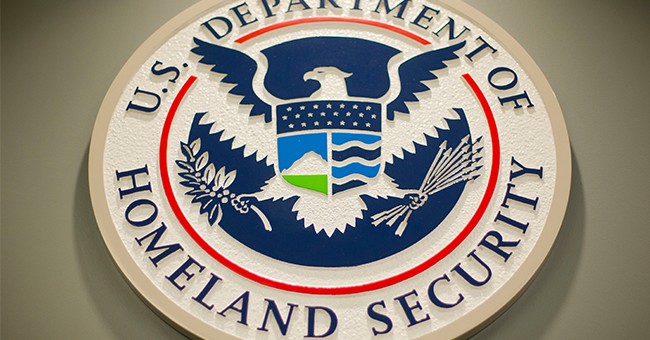
The COVID-19 pandemic has presented numerous problems for the United States. Restrictive shutdown orders have placed the economy in dire straits and jeopardized the employment of many Americans. As the government works to develop a viable vaccine and states struggle with reopening their businesses while curbing the spread of the virus, some threats are flying under the radar.
Chad Wolf, the Department of Homeland Security’s (DHS) acting secretary, indicated this week that the threat of domestic terrorism is a top national security concern. According to the director, right and left-wing extremist groups are taking advantage of the pandemic and shutdown orders to indoctrinate and recruit people to their causes.
Officials working in the private sector told The Washington Examiner that “foreign extremists attempting to enter the U.S. are not as much the problem as homegrown terrorists.”
Michael S. Smith II, a terrorism analyst and lecturer at Johns Hopkins University on global security and intelligence, said that “There’s a lot of legitimate cause of concern.” He explained that “You have seen growing instances of right-wing extremists modeling behaviors that can have an effect of inspiring confidence in their sympathizers’ interest in perpetrating violent crimes against minority groups, as well as against people who don’t ascribe to their political beliefs.”
He continued:
“When we see political leaders demonstrating an aversion to more aggressively speaking out against white conservative extremist elements, this can, meanwhile, have an effect on bolstering confidence in their causes among a wide array of known and obscure elements, raising from the KKK to the sorts of fringe groups that you’re seeing an increase of new media coverage of.”
Smith pointed out that far-leftist groups might be emboldened by “a physical attack by a far-right group that is not widely condemned as somehow legitimate.” This could “inspire a sense of urgency to act” when left-wing groups further radicalize their supporters, convincing them that “they will have to do more to defend their interests against that group that is somehow being nurtured.”
Hayley Peterson, who co-wrote a University of Albany study on terrorism during the pandemic, stated that while these groups are already residing in the United States, the coronavirus outbreak is causing tensions to rise. People are looking “online for someone to blame,” and for answers on the events related to the coronavirus.
Smith echoed Peterson’s sentiments. “People that were not influenced by foreign terror organizations like ISIS become more susceptible to right- and left-wing extremist propaganda because people are frustrated,” he said. “We’re looking at a powder keg right now. There’s social, economic, and political frustration on both ends of the Left and Right.”
The longer the economy suffers, and the worse the pandemic gets, the angrier people will become. Already, Americans are growing more frustrated by the government’s handling of the pandemic at the local, state, and federal levels. This unease could easily rise to a level that inspires violent acts.
Gary Ackerman, professor at the New York-based University at Albany’s College of Emergency Preparedness, Homeland Security, and Cybersecurity, explained that extremist elements on both sides of the political divide believe that the government is “illegitimate.”
On the left, extremists that this illegitimacy stems from the notion that corporations control the state. Right-wing extremists believe that the government is infringing on the freedoms of Americans.
Ackerman also indicated that the worst danger would occur after the first wave of the outbreak is concluded, but before a vaccine is developed. He also predicted that the threat would continue years after the pandemic due to the “lengthy economic stagnation” that will make for more fertile ground when it comes to radicalizing and recruiting members.
“Religious, nationalist extremists are using COVID and this time to expand, to get new followers, and radicalize. We’ve seen white nationalist websites traffic going up 100%,” he pointed out. “You’ve got a lot of people who have anxiety. … They feel anxious and uncertain, and this makes them much more susceptible to narratives extremists put out.”
In Iraq, the Islamic State (ISIS) has also used the pandemic to recruit more members and carry out terrorist attacks. Given the fact that so many frustrated Americans are still under restrictions and dealing with a downtrodden economy, it is not a surprise that extremist groups are capitalizing on the COVID-19 outbreak.
If the predictions of these experts prove to be correct, extremist groups could become a significant issue in the future. With all of the problems the country is dealing with at the moment, terrorist attacks could worsen an already difficult situation if law enforcement is unable to prevent them.
Let me know what you think in the comments below!





